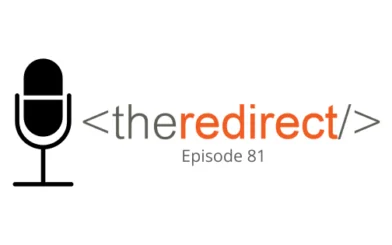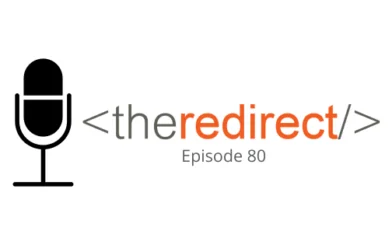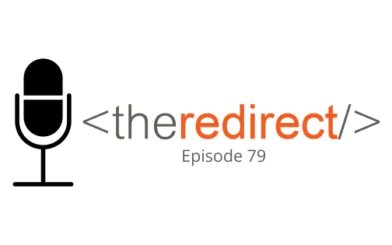Episode 36 / March 2, 2018
Listen now:
Welcome to The Redirect Podcast, where the BlackTruck Media + Marketing team shares recent insights and takeaways from the world of search marketing.
In this week’s episode:
- A quick update on organic data in the AdWords Keyword Planner Beta (begins at 10:01).
- We all rely on the “last click” attribution model for digital campaigns, but why? With multiple devices and touch points, customers see your message more than once. It’s time to change your attribution model to help measure those results. We share different attribution models found within AdWords and the impact those can have on your campaigns (begins at 10:58).
- Google recently announced they want to help users by answering more comprehensive questions with what they call “multifaceted featured snippets.” We discuss the types of questions that these might be best suited for and how it can affect your featured snippet opportunities (begins at 10:58).
- Discussion of voice search ranking factors (begins at 23:11).
Update on AdWords Keyword Planner
Last week, we discussed the new AdWords Keyword Planner and how it integrated organic search data. As of today, the organic data still has not populated a week after Patrick connected the Keyword Planner for a couple accounts to Search Console. These were for 2 accounts with a refined audience and lighter search volumes, so that may be a factor. Further research and monitoring will be done as more accounts gain access to the new Search Console.
Google AdWords Attribution Models
After a week of adjusting campaigns to change the attribution model from Analytics-based, to AdWords-based, conversations continue among our team around the subject of attribution models and the weaknesses of Last Click models vs. Time Decay vs. First Click.
We discussed the benefits of each, where limitations might arise, and the future of keeping it all contained in Tag Manager.
The default attribution in AdWords is Last Click which means that when a conversion occurs, it is the last click that gets credit for the conversion – so if someone clicked an ad, didn’t convert at that point, did a search 2 weeks later and clicked on the organic listing since they recognized the brand, and THEN converted, organic gets the win, not PPC.
The First Click model is the exact opposite and self-explanatory. You can extend these windows out generally to be looked at between 15-90 days, based on client needs.
The Time Decay model will give certain percentages of attribution to both organic and PPC based on that user’s path around the internet and how they ended up coming back to the site to get the conversion. Google defines the time decay model as follows:
“A customer finds your site by clicking one of your AdWords ads. She returns one week later by clicking over from a social network. That same day, she comes back a third time via one of your email campaigns, and a few hours later, she returns again directly and makes a purchase. In the Time Decay attribution model, the touchpoints closest in time to the sale or conversion get most of the credit. In this particular sale, the Direct and Email channels would receive the most credit because the customer interacted with them within a few hours of conversion. The Social Network channel would receive less credit than either the Direct or Email channels. Since the Paid Search interaction occurred one week earlier, this channel would receive significantly less credit.”
Read more on these attribution models from Search Engine Land and Marketing Land.
Multifaceted Featured Snippets in Google Search Results
These days, we’re all programmed to go to Google when we have questions. We know that Google has grown to be much more of an answer engine in the past 5-7 years.
Recently Google announced that they are delivering more comprehensive results to questions in search. This is what Google is calling “multifaceted featured snippets.” While we have not seen them in the wild yet, based on what we’ve read from Google and viewed in their own screenshots, you can see how they are taking and building on the “people also searched for” snippet that pops into the middle of SERPS sometimes, which has been derived from related search queries that have been found at the bottom of the SERPS.
With the advancements in machine learning, Google is able to interpret the intent behind the query better than they have before:
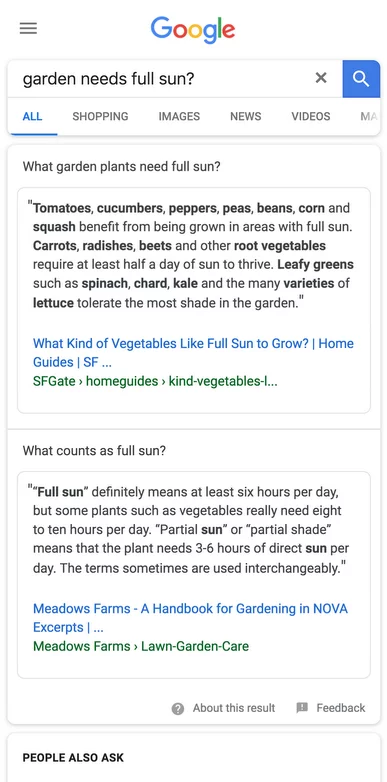
Looking at the People Also Ask snippet, Google also dives deeper into the several types of nuanced queries, where more comprehensive results or responses might be helpful to the search:
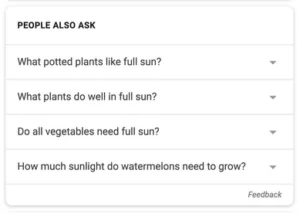 These will certainly impact what you’re doing on a content side and SEO front, as well as how ads could be served up within these types of search queries.
These will certainly impact what you’re doing on a content side and SEO front, as well as how ads could be served up within these types of search queries.
Deep Dive into Voice Search Ranking Factors
How about a deeper dive into voice search ranking factors? The team over at Backlinko did a pretty extensive analysis of voice search ranking factors, and what they found was in line with what many have already stated. However, a few items do stand out as being completely different and worth taking a second look at. Read more at Search Engine Land.
Thanks for tuning in! To catch future episodes of The Redirect Podcast, subscribe on SoundCloud, iTunes, or Stitcher.

